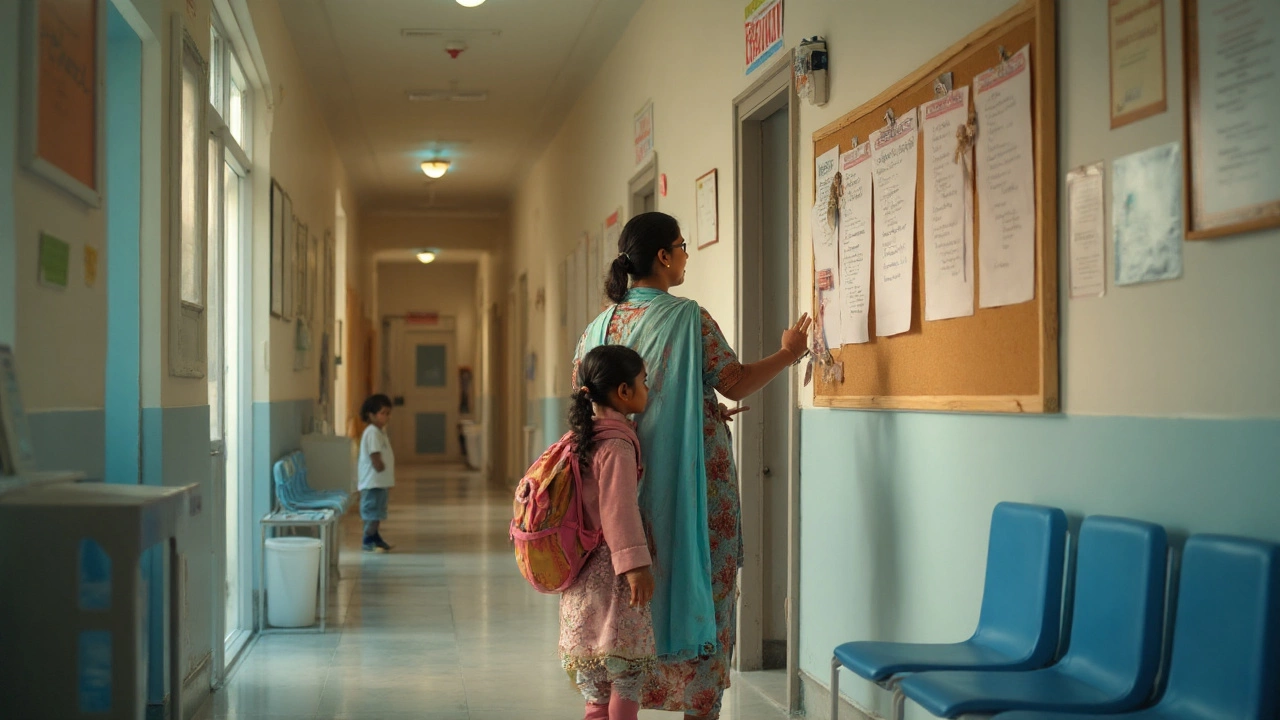
Which Doctor Is Best for Girls? Pediatrician vs OB‑GYN vs Family Doctor (2025 Guide)
Clear guide to the right doctor for girls by age and concern. Compare pediatrician, family doctor, adolescent medicine, and OB‑GYN with checklists and FAQs.
Finding a doctor who truly gets your daughter's health worries can feel overwhelming, but it doesn’t have to be. Start by listing what matters most – a friendly vibe, experience with girls, and a specialty that matches her age and concerns. Below are the steps that keep the process simple and effective.
Most kids stick with a pediatrician until they hit puberty. A good pediatrician knows how to talk to kids, handles everything from colds to vaccinations, and can spot early signs of issues that affect girls specifically, like hormonal changes. When your daughter enters her teens, you might add a specialist to the mix – think a teen‑focused gynecologist, an ENT who understands voice changes, or a mental‑health professional familiar with adolescent anxiety.
Ask yourself: Does she need routine check‑ups only, or are there recurring problems like skin acne, menstrual concerns, or sports injuries? The answer points you toward the right specialist. A female doctor isn’t always mandatory, but many parents feel more comfortable with a woman who’s experienced in girls’ health.
Look for board certification in pediatrics or the relevant specialty. A doctor who has spent years treating adolescents will be up‑to‑date on the latest guidelines for vaccines, HPV prevention, and mental‑health screenings. You can verify credentials on the medical council’s website or ask the clinic for a brief bio.
Don’t ignore reviews. Parents often share what they liked – short wait times, kids‑friendly language, respectful communication – and what they didn’t, like rushed appointments or dismissive attitudes. Focus on patterns rather than isolated complaints.
Another quick check: ask the doctor about their approach to discussing sensitive topics. A good clinician will explain procedures in a way that respects your daughter's privacy while keeping you in the loop.
First impressions matter. Take a short tour of the waiting area – are there toys, magazines for teens, and clean restrooms? A welcoming environment helps your child feel at ease. During a brief meet‑and‑greet, notice how the staff greets your daughter. Do they use her name? Do they smile?
Ask the doctor a few simple questions: How do they handle a girl who’s nervous about a physical exam? What’s their policy on after‑hours calls? Their answers give you a feel for their bedside manner and responsiveness.
Even a well‑rated doctor can be a poor fit. Watch for signs like dismissing your concerns, using overly technical jargon without explanation, or insisting on a one‑size‑fits‑all treatment plan. If appointments constantly run late, or you never get a clear follow‑up plan, consider looking elsewhere.
Another red flag is a lack of focus on preventive care. The best doctor for girls will schedule regular growth‑checks, discuss nutrition, and screen for mental‑health issues, not just treat illnesses as they appear.
Involve your daughter in the final choice. Let her meet the doctor, ask a question, and share how she feels about the visit. When she feels heard, she’s more likely to cooperate during exams and follow medical advice.
Once you’ve picked a doctor, keep track of appointments, vaccination records, and any notes from visits. A solid relationship with the right doctor can make a huge difference in your daughter's health journey from childhood through college.
Remember, the “best” doctor isn’t the one with the flashiest office – it’s the one who listens, respects your daughter's needs, and stays updated on girls’ health. Use these steps, trust your instincts, and you’ll find a doctor who feels like a partner in caring for your daughter.

Clear guide to the right doctor for girls by age and concern. Compare pediatrician, family doctor, adolescent medicine, and OB‑GYN with checklists and FAQs.